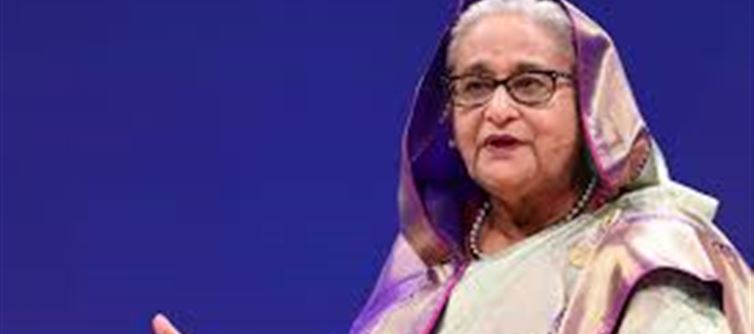
An Interpol red Corner Notice sought against Sheikh Hasina...
The massive public demonstration led by students in bangladesh last year changed the direction of Bangladesh's politics. The voices raised against corruption, unemployment and authoritarianism took the form of a mass movement and ultimately the Awami League government fell. After this, 77-year-old prime minister Sheikh Hasina had to leave the country and came to india to take refuge.
The National Central Bureau (NCB) of bangladesh Police on april 19 requested Interpol to issue a red Corner Notice against Sheikh Hasina and 11 others. This request has been made on the basis of an arrest warrant issued by the international Crimes Tribunal (ICT) of Bangladesh. These people have been charged with serious crimes against humanity and genocide, which allegedly occurred during Sheikh Hasina's tenure.
What does a red Corner Notice do?
A red Corner Notice is not an arrest warrant, but a request sent by Interpol to member countries to locate the person, temporarily arrest him so that he can be handed over for extradition. Member countries are not legally bound to act on this notice, it completely depends on their domestic laws and political intent.
India's role is very important
India's role becomes very important in this situation. An extradition treaty exists between india and bangladesh, but this does not mean that India will have to hand over Sheikh Hasina. india will first have to see whether the allegations are of political nature or not. If india feels that the action taken against Sheikh Hasina is motivated by political revenge, then it can refuse extradition.
Close relations between india and Sheikh Hasina
Apart from this, the relations between india and Sheikh Hasina have been historically very close. Under Hasina's rule, india and bangladesh have had an important partnership in security cooperation, border management and regional stability. In such a situation, this is not only a legal issue for india, but also a very sensitive diplomatic issue.




 click and follow Indiaherald WhatsApp channel
click and follow Indiaherald WhatsApp channel